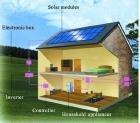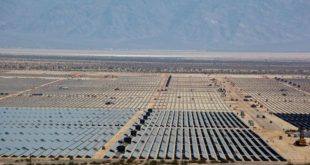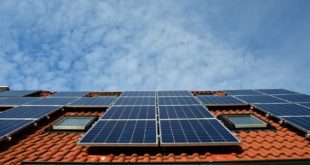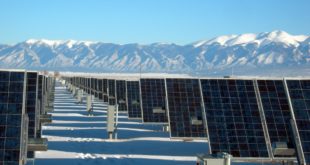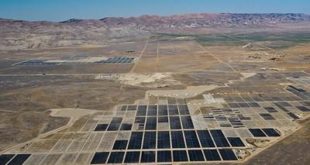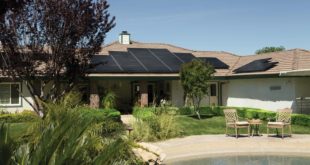There are a few ways to use the Sun’s energy to create home solar power systems. They can be categorized as passive and direct systems. Passive systems have been use for thousands of years and the inspiration behind such systems was probably the fact that our ancestors felt hot in the Sun. From this point they realized that the heat from the Sun can make water hot, cook food, dry clay bricks and countless other applications. Today there are systems that can passively heat the home living areas and the water used in the home. This article will not cover these topics but focus on the direct use of the Sun to create electricity for use in the home.
In terms of the use of solar energy, creating electricity from sunlight is a relatively new innovation. The technology needed to create electricity from sunlight was first developed to a commercially viable standard in the 1950’s. It is known as the photovoltaic (PV) cell. A PV cell is made of a silicon compound that reacts when photons from sunlight strike it. This reaction causes an electron from the silicon atom to be thrown loose. When a number of PV cells are linked together in a serial configuration, the electrons flow to a positive charge creating an electrical current.
A number of PV cells in a serial configuration is known as a solar module. When numerous solar modules are linked together in either a parallel or serial configuration they are known as a solar panel.
Solar panels are the devices that you may have seen on the roofs of houses in your neighborhood. They can be placed elsewhere, but the roof is often the most sensible place as it is likely to get exposed to direct sunlight and the panels can’t be damaged or vandalized as easily or take up room in the yard.
The solar panels create direct current (DC) electricity. This is often pushed through a power inverter. The inverter converts DC to alternating current (AC). AC is used in the home to power most appliances.
An electrical service panel or breaker box then distributes the AC to various electrical points in the house or to the lighting system. A utility meter manages your electricity usage if you are connected to the grid.
For instance, if it is during the day when the sunlight is at its strongest, most electricity will be produced. If this coincides with you being at work the chances are you won’t be using any of this solar generated power. Thus the meter may go backwards. This is effectively giving you credit for the electricity that you are creating with your home solar power system.
Your home solar power system can be connected to the grid as described above or it can be off grid. On the grid or grid tied (also known as a net metering system) is a way to make money with your solar panels. Many utility companies have their own set of rules governing this arrangement so you need to check with the company you are using beforehand. Many states have laws that dictate how the net metering system should work and what guidelines the companies should follow.
A true off grid system means you are not connected to a reliable power supply so you have the responsibility of creating your own energy. The primary source can be solar panels but there should always be a back up system in case you use more energy than you expected or the Sun doesn’t shine as much.
Many people will have a fuel powered generator for this purpose. People more interested in renewable power sources might go for a wind power generator or some other renewable system. Another aspect of an off the grid system is that DC needs to be stored in a battery bank for use at night or when the Sun is not shining. This is another responsibility and space has to be found on the property to securely house the batteries.
Most people start with a grid tied system as it is easier to use and there is less responsibility. As you gain more experience you may think about going off the grid. This form of home solar power system will save you money on monthly utility bills but more work to run and maintain.
 Alternative Energy HQ solar power for homes, wind energy, and bio fuel issues
Alternative Energy HQ solar power for homes, wind energy, and bio fuel issues

